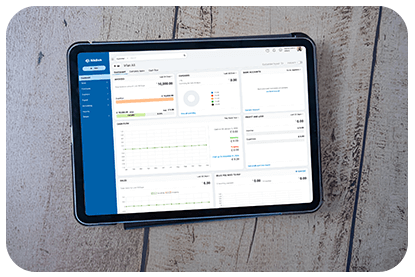19 April 2024
Bookkeeping vs Accounting: Key Differences You Should Know
If you are an entrepreneur or a master of the business, you probably heard about the word accounting and accounting. They are usually used mutually, but the reality is that they are not the same. Knowing the difference between bookkeeping vs accounting can help you manage business funding better and make better decisions.
So let’s dissect differences, check where they converge, and extend how both are important to the bottom line of your business.
What Is Bookkeeping?
Bookkeeping involves recording and putting together all a company’s monetary transactions. They range from the sales, buying, and costs to the receiving and making of payments. Bookkeepers record all financial moves and make sure that your monetary records are comprehensive, accurate, and current.
Bookkeeping services mainly involve the following core activities:
- Recording day-to-day transactions
- Reconciling bank accounts
- Processing payroll
- Processing invoices and receipts
- Tracking accounts payable and receivable
In brief, bookkeeping is the groundwork for all other monetary operations within your enterprise. Without it, you wouldn’t know how much cash you’re generating or expending.
What is accounting?
The accounts are a result of the accounting process. Once the financial journals have been finalized, the accounts undergo a brief review, interpretation, and categorization. Accountants rely on accounting records to compile financial reports, file tax returns, and offer insights into the company’s financial situation.
Some main accounts and accounting are service features:
- Preparation of accounting (income details, balance, cash flow details)
- Analysis of costs and profitability
- Tax plan and submission
- Budget and prognosis
- Maintenance
Therefore, while the purpose of accounting is full every day with input, accounting is strategic. Accountants help owners of companies make well -informed decisions through the use of financial information.
Bookkeeping vs Accounting: The Key Differences
Now that you understand what is bookkeeping and how it differs from accounting, let’s look at some of the major differences between the two in more detail:
1. Scope of works
Bookkeeping: deals with recording and classification of financial information.
Accounting: It is related to explain and analyze this information.
Accounting are administrative and transactions. Accounting is analytical and decision -oriented.
2. Important skills
Book holders must be expanded and easily with numbers. They provide data in accounting software and ensure that everything is in the right category.
The accountant holds a master’s degree or certificate such as CPA (certified accountant) and is skilled at analyzing complex financial information.
3. Financial reporting
Book holders usually do not form formal financial reports.
Accountants create reports such as balance, profit accounts and cash flow analysis that provide large pictures of your company.
4. Compliance and submission of taxes
Book managers maintain the necessary journals for submission of taxes, but they usually do not register tax.
In addition to complying with financial rules and laws, accountants prepare tax planning, preparation and archiving.
5. Decision support
Bookcipping maintains an item in order, but does not contribute directly to the strategy.
Accounting provides information that enables business owners to make operational and financial decisions.
Do You Need Both Bookkeeping and Accounting?
True. Accounting and bookkeeping are two sides of the same coin.
Your accountant can’t perform without proper bookkeeping. And you’ll never receive the ideas and tactics you need to expand your business without accounting. Both roles complement one another, and they form a complete system of managing finances when together.
This is why numerous small businesses prefer to invest in bookkeeping and accounting services. Employing professionals to manage both guarantees accuracy, compliance, and planning for the future all vital to long-term success.
The Rise of Professional Bookkeeping Services
With cloud computing and automation software, it’s simpler than ever to outsource your bookkeeping. Numerous entrepreneurs opt to employ a bookkeeping service to keep the day-to-day recording of financial transactions.
Bookkeeping services provide:
- Industry-leading experience with QuickBooks, Xero, or FreshBooks software
- Regular and frequent financial reporting and updates
- Prompt reconciliation of bank and credit card statements
- Current and accurate records that simplify tax time
Coupled with accounting vs bookkeeping services, you have complete financial care from day-to-day record-keeping to overall strategy.
When Should You Hire a Bookkeeper or Accountant?
If you’re unsure when to bring in help, here are a few signs that it might be time to invest in professional support:
Hire a Bookkeeper If:
- You’re behind on your financial records
- You spend more time managing finances than running your business
- You’re not sure where your money is going
- Your invoices and receipts are piling up
Hire an Accountant If:
- You’re preparing for tax season or a tax audit
- You want help with budgeting and forecasting
- You’re applying for a business loan or looking for investors
- You need strategic advice to grow your business
Many service providers bundle both functions into a single package, offering integrated Bookkeeping vs accounting services tailored to small businesses and startups.
Whether you’re doing it yourself or hiring a professional, having the right tools can make a big difference. Here are some popular software platforms used in bookkeeping vs accounting:
Bookkeeping Software:
- QuickBooks: User-friendly and widely used for small businesses.
- Xero: Cloud-based with a strong ecosystem of apps.
- Wave: A free option for small businesses and freelancers.
Accounting Software:
- FreshBooks: Great for invoicing and small business accounting.
- QuickZeros Books: Offers comprehensive features at a lower price point.
- Sage: A more robust platform, ideal for growing businesses.
Most accounting and bookkeeping services will use one or more of these platforms to manage your financial data efficiently and securely.
Read More About: Is Bookkeeping Different from Accounting?
Final Thoughts: Bookkeeping vs Accounting Matters
Understanding the difference between bookkeeping vs accounting helps you manage your business smarter. Bookkeeping ensures your daily financial activity is recorded and organized, while accounting provides the big-picture analysis that helps you make informed decisions.
Whether you’re managing finances yourself or working with a professional, both roles are essential to running a successful, compliant, and profitable business.
Investing in reliable bookkeeping service and accounting support isn’t just about saving time—it’s about gaining clarity and control over your financial future. When these functions work together, you gain a powerful advantage in today’s competitive business world.




